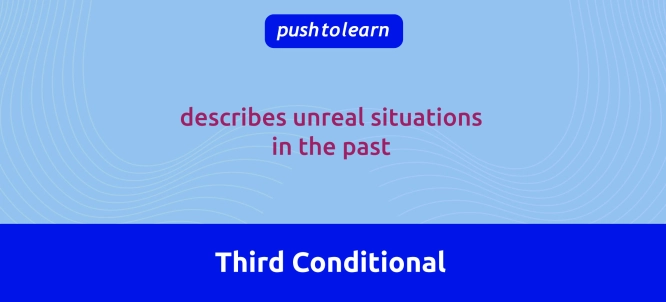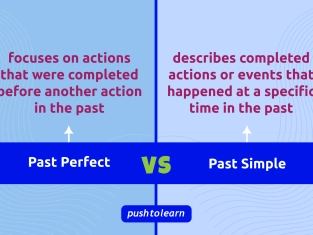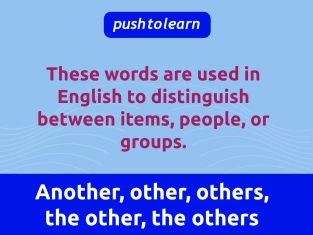by PushtoLearn
Third Conditional
Table of Contents
Third Conditional – Exercises
These exercises focus on Third Conditional
What is the Third Conditional?
The Third Conditional describes unreal situations in the past. It talks about events that did not happen and imagines the results if they had happened differently.
Structure of the Third Conditional
The basic structure is:
If + past perfect, would + have + past participle
|
Part of the Sentence |
Example |
Explanation |
|
If clause (condition) |
If I had studied harder, |
This shows what could have happened. |
|
Main clause (result) |
I would have passed the exam. |
This explains the imagined result. |
Full example: If I had studied harder, I would have passed the exam.
This means: I didn’t study hard, so I didn’t pass the exam.

Rules for Using the Third Conditional
-
Condition in Past Perfect
The "if" part always uses the past perfect tense (had + past participle).
Example: If she had left earlier, she would have caught the bus. -
Result in Would Have + Past Participle
The second part uses would + have + past participle to describe the imagined result.
Example: If they had practiced more, they would have won the match. -
Comma Placement
-
Use a comma when the "if" clause comes first: If I had known, I would have helped you.
-
No comma is needed if the result comes first: I would have helped you if I had known.
Everyday Uses
-
Expressing regret:
If I had woken up earlier, I wouldn’t have missed my flight. -
Blaming situations:
If he had followed the rules, this wouldn’t have happened. -
Imagining different outcomes:
If we had taken the shortcut, we would have arrived on time.
Common Errors
-
Forgetting the past perfect in the "if" clause:
Incorrect: If I studied harder, I would have passed.
Correct: If I had studied harder, I would have passed. -
Using “would” in the "if" clause:
Incorrect: If I would have studied harder, I would have passed.
Correct: If I had studied harder, I would have passed. -
Confusing it with the Second Conditional:
The Second Conditional talks about the present or future:
If I studied harder, I would pass the exam.
The Third Conditional is about the past:
If I had studied harder, I would have passed the exam.
FAQ about the Third Conditional
What is the difference between the Second and Third Conditional?
-
Second Conditional: Unreal situations in the present or future.
Example: If I were rich, I would buy a house. -
Third Conditional: Unreal situations in the past.
Example: If I had been rich, I would have bought a house.
Can I use “could” or “might” instead of “would”?
Yes! You can use could have or might have to express possibility or ability.
Example: If I had tried harder, I could have succeeded.
Can I mix the Third Conditional with other conditionals?
Yes, in some situations. Example: If I had studied, I would pass the test now. (Past condition with present result.)
What if I want to use “unless” instead of “if”?
“Unless” means “if not.” Example: Unless he had been late, we would have finished on time.
Is the Third Conditional formal?
No, it is commonly used in everyday conversations, especially when expressing regret or imagining different outcomes.

